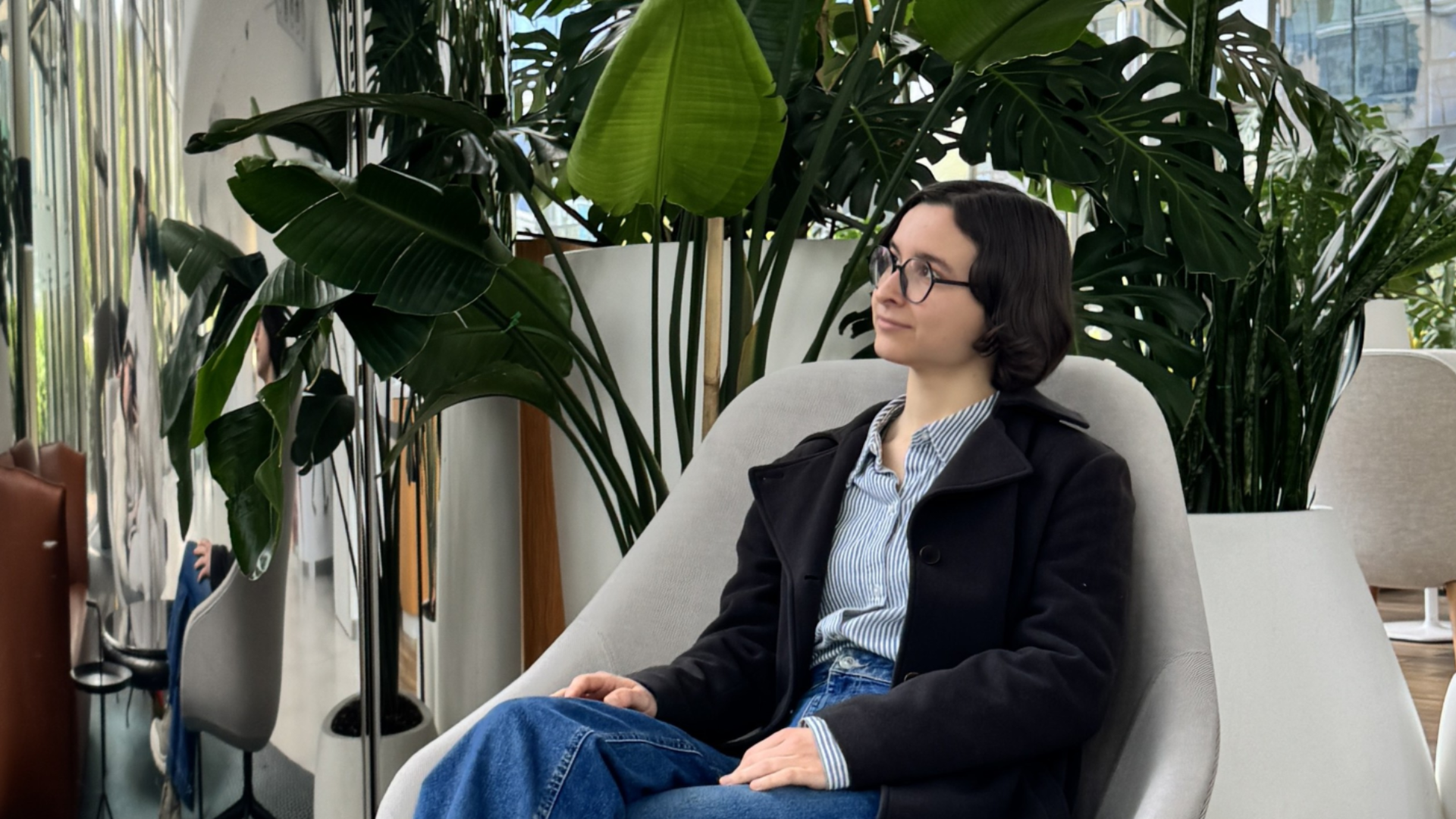Why Your Generation Can’t Escape Corruption
Your daily lies are training you for bigger betrayals. Here’s how to break the cycle before it’s too late
Table of contents
- Why this affects your daily life more than you think
- Why good people make corrupt choices
- The friendship tax: how corruption destroys relationships
- The values crisis: what you really stand for
- So, what can we do about it?
Why this affects your daily life more than you think
You think corruption is some abstract political thing? Wrong. Dead wrong.
Yesterday you lied to your professor about why your assignment was late. You said your laptop crashed. The truth is, you spent the night binge-watching Netflix instead of working. This morning you downloaded another textbook PDF. «Everyone does it,» you told yourself. The bookstore is overpriced anyway. You’re just being smart with money, right?
Your roommate texted asking if you could cover their share of rent again. Third time this month. You said yes because you «don’t want drama.» But now you’re broke and they’re out partying. These aren’t random events. They’re training sessions. Every small lie, every shortcut, every time you choose convenience over character — you’re literally rewiring your brain to normalize corruption. Here’s what nobody tells you: our generation makes more ethical decisions before lunch than previous generations made all week. Every app download, every shared password, and every copied homework assignment is a choice. And your brain is keeping score.
And you know what? You don’t feel corrupt while it happens. You feel practical. Smart. Like you’re beating the system.
But the system is beating you back. That friend who always needs favors but never helps? They’re learning that relationships are transactional. Your classmate who cheats on every exam? They’re training for a career built on lies. Last week I watched my body justify downloading a $200 software program because «the company makes millions anyway.» Same logic corrupt politicians use. Same brain patterns. Different scale. Your daily micro-corruptions aren’t harmless. They’re practice rounds for bigger betrayals. The student who plagiarizes papers becomes the employee who falsifies reports. The friend who always takes but never gives becomes the boss who exploits their team. You want to know why our generation inherits a world full of corruption? Look in the mirror. Check your download folder. Count your white lies. Every compromise is a vote for the kind of person you’re becoming. What are you voting for?
Why good people make corrupt choices
Last semester I watched my own Uni group. Perfect student — straight As, volunteers at animal shelter, never even jaywalks — completely lost her mind during finals week. «I’ll just ask ChatGPT and DeepSeek a couple of questions to understand the exam,» she said. «Not copying, just understanding the approach.» Two hours later? Half her project was copy-pasted from GitHub. By morning, she’d submitted someone else’s work with her name on it. What happened? The same thing that happens to all of us when pressure hits. Your brain has a corruption switch. Stress flips it without asking permission.
(sorry, here is a little bit of borring science)
When deadlines attack, your prefrontal cortex (the part that usually screams «this is wrong!») Gets hijacked by your amygdala yelling «SURVIVE NOW, THINK LATER.» That moral voice in your head? It literally gets quieter.
She didn’t wake up planning to cheat. She planned to «just peek.» But your brain treats tiny ethical compromises like they’re nothing. Each small step makes the next one easier to swallow. You’re surrounded by corruption every single day. Your classmates share test answers. Your friends download pirated content. Your roommates lie to their parents about money.
Your mirror neurons (yeah, that’s actual brain science) automatically copy what you see others doing. When everyone around you is cutting corners, your neural pathways literally rewire to see cheating as normal. And rationalization feels like wisdom. «The system is rigged anyway.» «Rich kids have advantages I don’t have.» «I’ll never use math and philosophy in real life.» Your brain becomes incredibly creative at explaining why rules don’t apply to you right now.
My study group friend still thought she was a good person while submitting stolen code. She was just being «resourceful» and «working smart.» This is how corruption spreads. Not through evil masterminds in dark rooms (but this happens too). Through good people making «practical» decisions under pressure. When your corruption switch gets flipped, will you even notice? Or will you just call it survival?

The friendship tax: how corruption destroys relationships
You know that friend who always needs something? Yeah, that one. The one who «borrows» money but never pays it back. Who disappears when you need support but magically reappears when their rent is due? Who treats your Netflix password like a human right. This is corruption in relationships. And it kills friendships faster than any dramatic betrayal ever could. When favors become expectations, friendship dies. You help someone once because you care. They start expecting it. Soon, saying no feels like you’re breaking some sacred contract you never signed. Trust erodes from both directions. You resent being used as a personal ATM. They lose respect for your boundaries because you never enforce them. Neither of you values what you once had. The «friendship tax» compounds over time. Each unreciprocated favor costs more than the last one. Not just money or time, but emotional energy. You start screening their calls. They start treating you like a resource instead of a person.
Here’s what happened in my friend group last year. One guy always borrowed textbooks but never shared his own. Always asked for help with assignments but was «too busy» when others needed support. By semester’s end? Nobody invited him anywhere. He couldn’t understand why people were «being mean» to him.
Corrupt friends aren’t real friends. Real friendship requires mutual investment — emotional, practical, and spiritual. When one person consistently takes without giving back, the relationship becomes transactional corruption dressed up as friendship. The friend who always needs help but never offers any is training for bigger corruptions in their professional life. The roommate who never pays their share is practicing to be the colleague who lets others carry the workload. Your friend group shapes your character more than you realize. Corrupt relationships teach you that exploitation is normal. Healthy relationships teach you that mutual respect is possible. The friends you keep today determine the person you become tomorrow.
The values crisis: what you really stand for
You say you value honesty. But you lied to your parents last week about where you were. You claim family is important. But you spent three hours scrolling TikTok instead of calling your grandmother. You talk about integrity. However, you copied homework «just this once» because you were too tired to do it yourself. Welcome to the values crisis — the gap between what you say you believe and how you actually live. Your actual values vs. your convenience values. Most people have two sets of values: the ones they claim in conversations and the ones they practice when nobody’s watching. Your real values show up in your calendar, your bank account, and your daily choices. The integrity test you face daily. Every small decision is a test: Do you choose comfort or character? Do you pick the easy path or the right path? These micro-moments shape who you’re becoming more than any major life decision ever will.
Values are like muscles — use them or lose them. Each time you choose convenience over conviction, you weaken your moral muscle. Each time you act against your stated values, you train your brain that integrity is optional. Today we see more value-testing moments per day than any previous gen. Ask your parents or older friends. Social media creates constant pressure to present false versions of yourself. Academic competition tempts you to cut corners. Digital anonymity makes deception easier than ever. Building character when nobody’s watching. Real character isn’t about grand gestures — it’s about doing the right thing when it costs you something. It’s choosing truth when lies would be easier. It’s helping others when there’s no reward. Likewise, it’s staying consistent with your values even when they inconvenience you. Your values aren’t what you say they are. They’re what you do when you think nobody’s looking.
Who are you becoming through your daily choices?
So, what can we do about it?
You know what? I’m done pretending this has easy answers. You want the truth? Most people reading this will close the tab and go back to scrolling TikTok. They’ll share it on their story with some fire emojis and forget about it by tomorrow. Because real change is uncomfortable as hell. But maybe you’re different. idk. Possibly you’re tired of being a walking contradiction — talking about values while living like they don’t exist.
Here’s what actually works, not the feel-good rubbish everyone else is selling:
- Start with one micro-decision today. Not tomorrow. Not Monday. Right now. Pick the smallest corrupt habit you have and kill it dead. Stop downloading that pirated software. Stop lying about why you’re late. Stop taking credit for group work you didn’t do.
- Track your integrity like you track your screen time. Write down every time you choose convenience over character. Every single compromise. Watch the pattern. Most people lie to themselves about how often they sell out their values. Stop being most people.
- Find people who call you on your garbage. Your enabler friends who laugh when you cheat? Ditch them. Find someone who actually cares enough to make you uncomfortable when you’re being weak. Real friends don’t let you stay mediocre.
- Accept that you’ll fail constantly. I failed. You’ll fail too. The difference between winners and losers isn’t perfection — it’s getting back up when you realize you’ve been living like a fraud again.
- Stop waiting for motivation. It’s not coming. Corrupt people feel just as motivated as honest people. The difference is they act regardless of feelings. Build systems, not hopes.
Look, corruption isn’t some abstract political problem. It’s you choosing comfort over character every single day. It’s you accepting that «everyone does it» as an excuse to be weak. Our generation will either fix the world or finish breaking it. The choice is yours. Every day. Every small decision. Stop reading about change. Start being it. Or don’t. But stop pretending you care if you won’t act. The world is watching. Your future self is counting on you. What’s it going to be?
 EN
EN  УКР
УКР  POL
POL 

